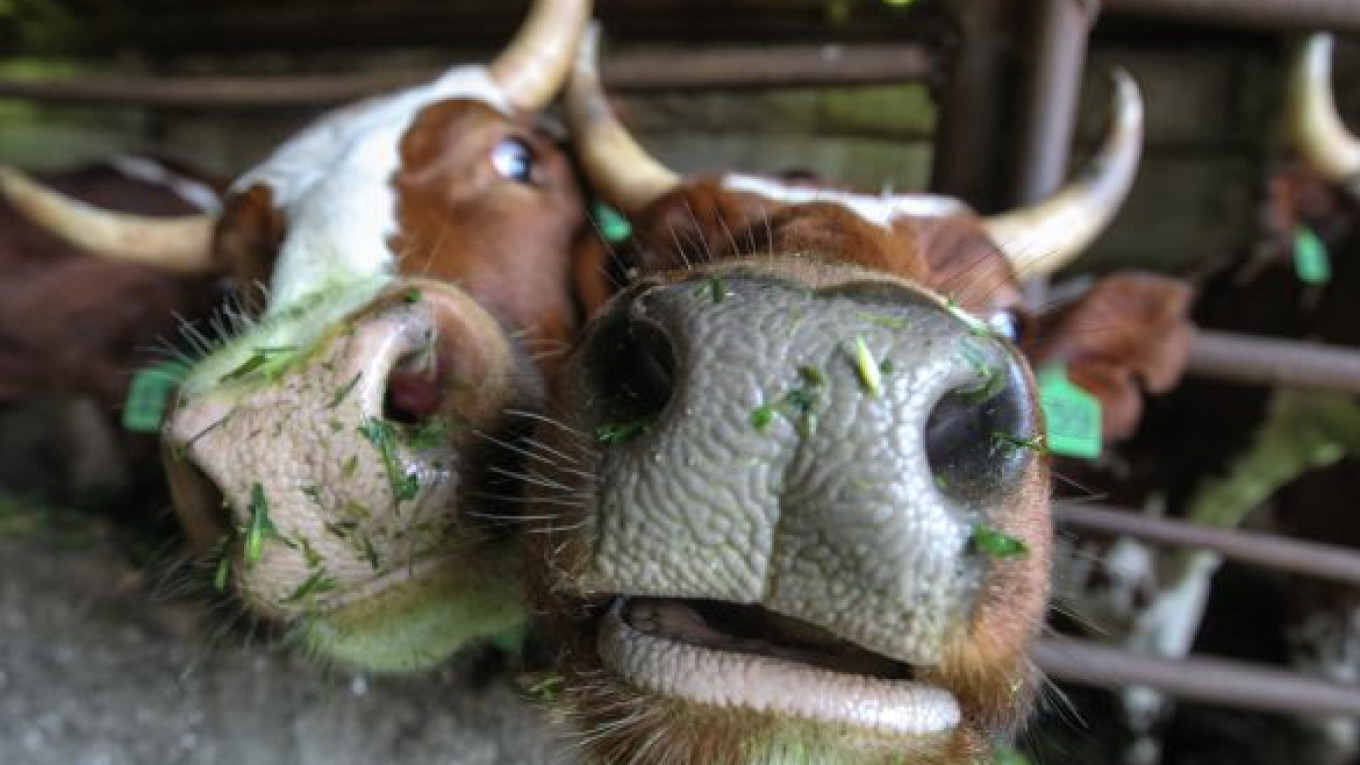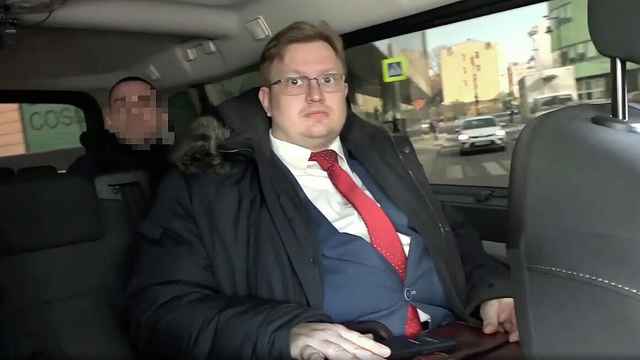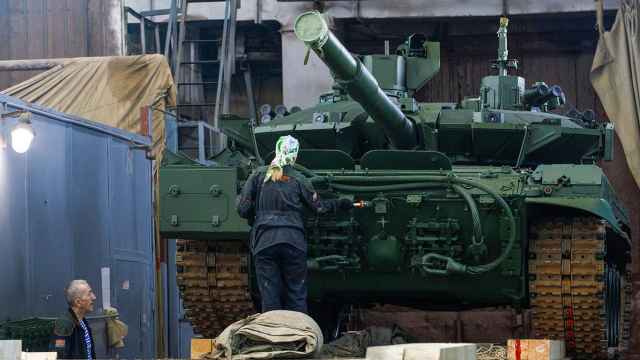The city of Moscow will promote agribusinesses in the recently annexed territories known as Greater Moscow, said Andrei Sharonov, deputy mayor for economic policy.
In July, authorities incorporated 148,864 hectares southwest of Moscow into the city, more than doubling its size.
Though Russian law does not provide for the existence of rural settlements within municipalities, City Hall has agreed not to change the rural lifestyle of the new territories, Sharonov said.
"We want to live and develop here," Valery Vinogradov, chief executive of the Klyonovo-Chegodayevo cattle farm, said during a visit by Sharonov to the farm. "We've got our own lifestyle; our children and grandchildren live here."
Sharonov said City Hall had approved guidelines for supporting agribusinesses based in the territories. Under the rules, federal and city authorities will reimburse expenses on mineral fertilizers and interest on loans and finance milk and meat production.
Moscow's 2012 budget is expected to allocate 58.9 million rubles ($1.8 million) to aid farmers, but the actual demand for aid is projected to be 22.8 million rubles, Sharonov said.
City Hall has also applied for an extra 13.4 million rubles from the federal budget, he added.
Sharonov also said city authorities would revise the food safety program.
But Dmitry Rylko, chief executive of the Institute for Agricultural Market Studies, doubts that developing agriculture inside the city limits would be practical.
The environmental situation in the territories might deteriorate in five to 10 years, he said.
"There are highways as well as the Audit Chamber and Cabinet buildings there, and next to them are a dairy cattle herd and greenhouses?" he said, referring to the planned relocation of some government buildings to the new territories. "This is doubtful."
Yury Luzhkov, the previous mayor, also attempted to promote agriculture.
In 2006, City Hall adopted a food safety program under which Moscow-based agribusinesses were expected to play a major role.
Luzhkov said in 2008 that there were 25 big agribusiness groups in Moscow and that 500 billion rubles had been invested in them. No timelines were specified.
In Greater Moscow, there are several businesses focused on the selective breeding of animals.
These include the Tolstopaltsevo cattle farm, the Klyonovo-Chegodayevo cattle farm, which has biogas equipment to use manure for power production and heating, and the Ptichnoye poultry farm.
Other key agribusinesses include Agroekologia, which possesses a technology to grow vegetables without irrigation, and Kamenka, which produces premium seed varieties.
A Message from The Moscow Times:
Dear readers,
We are facing unprecedented challenges. Russia's Prosecutor General's Office has designated The Moscow Times as an "undesirable" organization, criminalizing our work and putting our staff at risk of prosecution. This follows our earlier unjust labeling as a "foreign agent."
These actions are direct attempts to silence independent journalism in Russia. The authorities claim our work "discredits the decisions of the Russian leadership." We see things differently: we strive to provide accurate, unbiased reporting on Russia.
We, the journalists of The Moscow Times, refuse to be silenced. But to continue our work, we need your help.
Your support, no matter how small, makes a world of difference. If you can, please support us monthly starting from just $2. It's quick to set up, and every contribution makes a significant impact.
By supporting The Moscow Times, you're defending open, independent journalism in the face of repression. Thank you for standing with us.
Remind me later.






